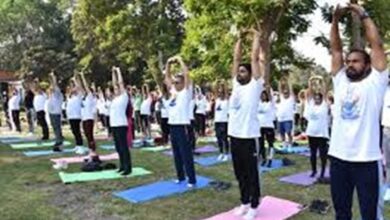
Researchers at Queens University in Canada challenged the common association of yoga and other exercise-based relaxation activities with relief from tension, stress and anxiety, concluding they can be beneficial to those with social anxiety.
According to clinical psychology PhD candidate Adam Heenan, such activities are quite literally able to change people’s perception of the world, reducing threatening and negative feelings.
“This is a big development because it helps to explain why exercising and relaxation techniques have been successful in treating mood and anxiety disorders in the past,” says Heenan.
In the study, subjects were asked to either perform muscle relaxation exercises similar to yoga, jog on a treadmill or, in the case of the control group, just stand on the treadmill.
A total of 66 male and female participants between the ages of 17 and 29 were assessed, although no information on their state of mental health at the time of the study is mentioned and their level of social anxiety was assessed solely by means of Heenan’s tests.
To test subjects’ perception, Heenan asked participants to view a point-light display of a human walking and asked them to identify whether the figure was approaching them or not.
More subjects said the figure was walking towards them, a sign of social anxiety and intimidation, before their relaxation exercises rather than after.
“We found that people who either walked or jogged on a treadmill for 10 minutes perceived these ambiguous figures as facing towards them (the observer) less often than those who simply stood on the treadmill,” says Heenan.
Heenan added that the result was the same when the group who performed progressive muscle relaxation exercises was compared to the control group.
The findings were published in the journal PLOS ONE, although this is not the first academic study to conclude that relaxation exercises have significant health benefits.
In 2011 researchers in New Orleans found that not only does yoga reduce anxiety, it can also improve heart health.
Researchers worked with 49 patients who suffer from atrial fibrillation, a condition characterized by irregular heart rhythms provoked by miscommunication among the heart’s natural electrical signals.
The test groups showed significantly reduced symptoms after a three-month yoga intervention.
The study was published in the Journal of the American College of Cardiology.




